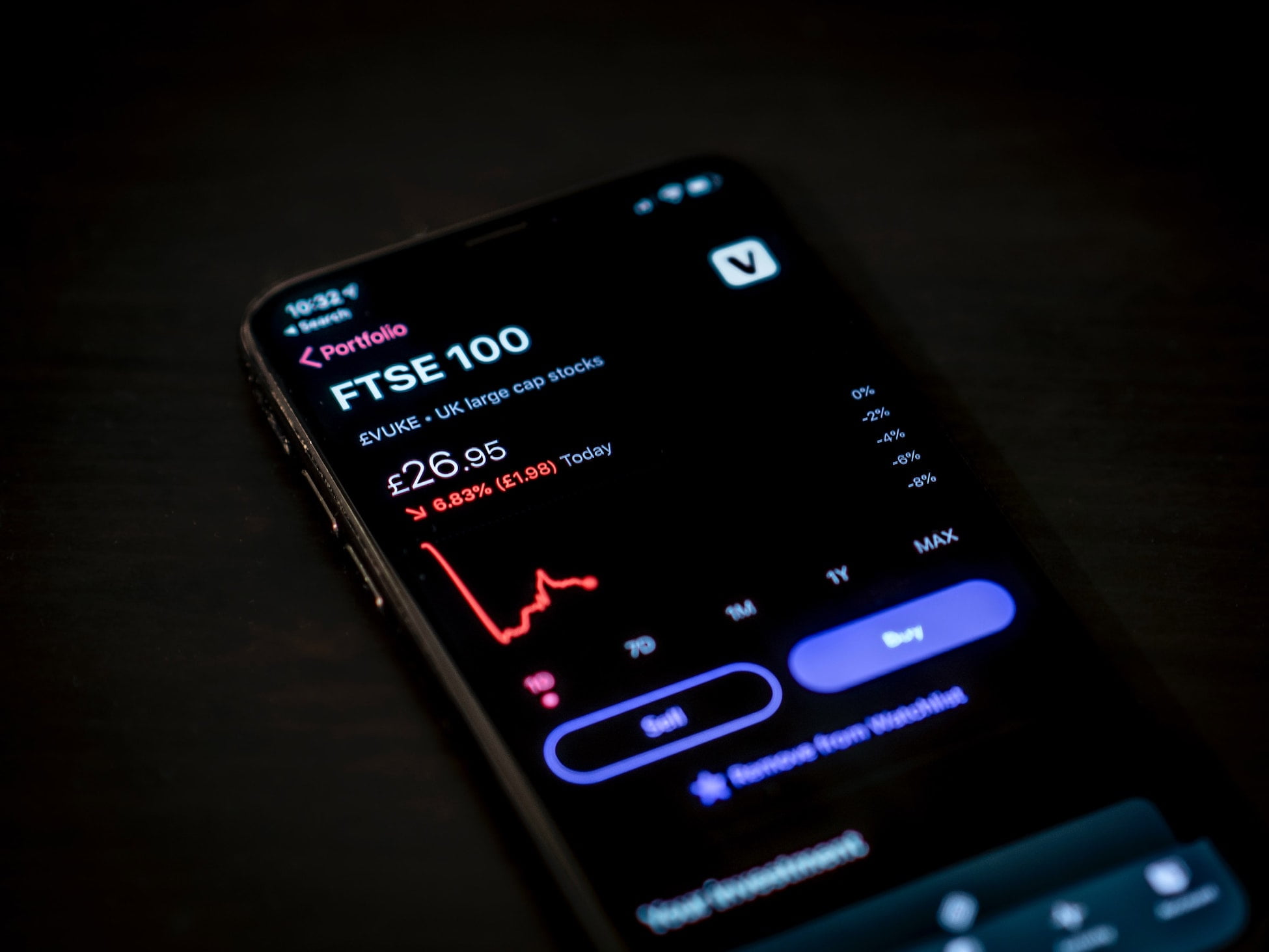Ever wondered how you can make your money work as hard as you do, without the headache of complex financial jargon? Welcome to the world of Stocks and Shares ISAs—a powerful, tax-efficient tool that lets you invest in your future without drowning in red tape. Whether you’re juggling student loans, saving for that dream vacay, or planning to be a financial boss, this guide is here to break down the benefits, fees, rates, and key information about Stocks and Shares ISAs in a way that’s as easy to digest as your favorite playlist. So, grab your latte and let’s dive into making your money moves more intelligently!
Stocks and Shares ISA: Benefits, Fees, Rates & Key Information Table of Contents
Understanding Stocks and Shares ISAs: What’s the Buzz All About?
The Top Benefits of a Stocks and Shares ISA
Diving Into the Fees: What Are You Really Paying For?
Rates, Returns, and Risk: Navigating the Market Landscape
Key Information You Need to Know About Stocks and Shares ISAs
How to Get Started with Your Stocks and Shares ISA
Staying Ahead of the Curve: Trends and Tips for Modern Investors
Resources and Community Support: Your Next Steps
Real-Life Success Stories: Inspiring Journeys in ISA Investing
Tracking Your Progress: Tools and Tips for Smart Investors
Mastering the Art of Long-Term Investing with Your ISA
Frequently Asked Questions about Stocks and Shares ISAs
Your Path to Financial Empowerment Through Stocks and Shares ISAs
Understanding Stocks and Shares ISAs: What’s the Buzz All About?
In a nutshell, a Stocks and Shares ISA (Individual Savings Account) lets you invest in a wide array of assets—from the share prices of blue-chip companies to bonds and funds—while keeping your investment gains tax-free. That’s right: you get to keep the profits, minus the government’s cut, and you can reinvest your earnings without worrying about capital gains or income tax eating into your returns.
Originally designed for long-term savers, the Stocks and Shares ISA is now the secret sauce for anyone looking to boost their financial wellbeing. No more choosing between a low-interest savings account and a high-risk gamble—the ISA offers a balanced blend of growth potential and tax advantages that are perfect for both conservative investors and risk-takers alike.
Think of it as a VIP club for your money. Instead of letting those hard-earned pounds sit idle, locked away in a standard bank account, this ISA transforms them into a dynamic portfolio that grows over time. And the best part? You can make contributions year after year (up to a government-mandated limit), making it a key part of your long-term financial strategy.
The Top Benefits of a Stocks and Shares ISA
Let’s get real: saving and investing can sometimes feel like deciphering an ancient language. But the upside of a Stocks and Shares ISA is anything but old school. Here’s why it’s the investment tool that’s got everyone talking:
Tax-Free Returns
The shining star of a Stocks and Shares ISA is its tax-free nature. Any gains, dividends, or interest you earn on your investments are completely yours, untaxed. Say goodbye to the days when a slice of your hard-earned profits was automatically whisked away by taxes.
Flexibility and Freedom
Unlike pensions that lock your money away until retirement, the ISA gives you liquidity and flexibility. Need funds for an emergency, an impromptu road trip, or that must-have gadget? You can withdraw your money whenever necessary, although it’s wise to keep an eye on the long haul if you’re aiming for major growth.
Diverse Investment Opportunities
Whether you’re comfortable with a bit of risk or prefer a more calculated approach, a Stocks and Shares ISA lets you invest in a wide range of assets. From stocks and bonds to mutual funds and exchange-traded funds (ETFs), you have the power to build a diversified and robust investment portfolio.
Long-Term Growth and Compound Interest
Over time, the magic of compound interest can turn even modest, regular contributions into a substantial nest egg. With a Stocks and Shares ISA, reinvesting your returns helps build momentum over the years, making it a stellar option for those planning for future milestones like buying a home or a comfortable retirement.
Investment Control and Transparency
One of the coolest aspects of a Stocks and Shares ISA is that you’re in the driver’s seat. You can choose your own investments, monitor performance in real-time, and adjust your strategy as market trends change, all while enjoying complete transparency about fees and costs.
Diving Into the Fees: What Are You Really Paying For?
Let’s face it, no one likes hidden charges—even if you’re not exactly a finance nerd. Many potential investors worry about fees eating into their returns, and rightfully so. Here’s what you need to know about the fee structure in a Stocks and Shares ISA:
Management and Platform Fees
Whether you opt to invest through an online platform or a traditional financial advisor, there’s typically a management fee associated with maintaining your portfolio. This fee is usually a small percentage of your total investment and is charged annually. Look for platforms that offer competitive rates without compromising on quality or customer support. Some robo-advisors even offer lower fees while ensuring that your portfolio is diversified efficiently.
Fund and Investment Charges
If you’re investing in managed funds or ETFs through your ISA, there might be additional fees charged by the fund managers. These fees are usually embodied in an expense ratio, which covers operating costs and other administrative expenses. While it might seem like these charges are minor, over time, they can impact your overall returns—so always compare expense ratios before you commit.
Dealing Charges and Transaction Costs
Whenever you buy or sell assets within your ISA, you may be hit with dealing charges. These are the transaction fees that brokers or platforms levy when you execute trades. Though generally low, frequent trading could increase your cumulative costs, so it’s worth balancing between seizing market opportunities and avoiding excessive fees.
Exit and Transfer Fees
Thinking about switching your ISA provider in the future? Some providers impose exit fees or fees for transferring your ISA to another platform. This is something to keep in mind as you shop around for the best deal. Before making any moves, read the fine print to ensure that moving your account won’t cost you more than it’s worth.
Ultimately, understanding and managing these fees is key to maximizing your returns. Don’t be scared off by the numbers—instead, treat them as part of the investment equation. With a little planning and savvy platform selection, you can minimize fees and keep more of your money working for you.
Rates, Returns, and Risk: Navigating the Market Landscape
If you’ve ever wondered how your money can multiply over time, you’ve probably come across the terms “rates” and “returns.” In the context of a Stocks and Shares ISA, these refer to the performance of your investments. Let’s break it down:
Understanding Rate of Return
The rate of return is essentially the percentage gain (or loss) on your investments over a given period. In a Stocks and Shares ISA, returns can be highly variable, influenced by market conditions, the performance of individual companies, and broader economic trends. While some years may see impressive gains, others might bring more modest growth or even losses.
The Role of Compound Interest
Compound interest is the secret sauce behind long-term wealth creation. When earned returns are reinvested, they begin earning returns themselves, leading to an exponential growth curve. It’s like a snowball effect—starting small but gaining momentum as time passes.
Balancing Risk and Reward
Investing in a Stocks and Shares ISA isn’t without risks. Market volatility, economic downturns, and unexpected events (hello, 2020!) can all influence your portfolio’s performance. However, a diversified portfolio—spreading your investments across various asset classes—can help mitigate these risks. The key is finding your comfort zone: if you’re a cautious investor, you might lean towards more stable sectors or bonds, whereas a risk-taker might go for high-growth stocks.
Historical Performance vs. Future Prospects
Past performance is a nifty indicator but not a guarantee of future success. While historical data can help you gauge trends, it’s important to acknowledge that the market is always evolving. Keep an eye on economic indicators, technological advancements, and geopolitical events that might affect market performance.
For millennials and Gen Z investors, who are generally in a position to think long-term, riding out market fluctuations can often lead to rewarding outcomes. Patience and regular contributions can allow you to take advantage of the market’s natural ebbs and flows, potentially leading to significant financial gains over time.
Key Information You Need to Know About Stocks and Shares ISAs
Before you dive headfirst into your investing journey, here are some crucial details about Stocks and Shares ISAs that every savvy investor should keep in mind:
- Annual Allowance: Each tax year, there’s a maximum amount you’re allowed to contribute to your ISA. Keep an eye on this figure as it can change with government policy. Maximizing your allowance ensures you’re making the most of the tax benefits available.
- Investment Horizon: Stocks and Shares ISAs are designed for long-term growth. If you’re thinking about investing for a few months here and there, this might not be the ideal tool—although it can always serve as a secondary account for those inevitable “rainy day” investments.
- Diversification is Key: One of the golden rules of investing is not to put all your eggs in one basket. Spread your investments across different sectors, industries, and asset classes to reduce risk.
- Market Fluctuations: Remember, the value of investments can go up as well as down. Avoid making hasty decisions based on short-term market movements—instead, focus on your long-term strategy.
- Monitoring and Rebalancing: Regularly check in on your portfolio. As markets shift, your portfolio may need rebalancing to stay aligned with your financial goals.
- Professional Guidance: If you’re new to investing or are feeling overwhelmed, consider seeking advice from a financial advisor who can help tailor a strategy to your unique needs.
- Regulatory Protections: ISAs are well-regulated, providing you with a level of protection and transparency that builds consumer confidence—another reason this vehicle is a favorite among UK investors.
Armed with this key information, you’re better equipped to make informed decisions about your Stocks and Shares ISA. It may seem like a lot to take in at first, but knowledge is power—and with the right information, you can navigate the investment landscape like a pro.
How to Get Started with Your Stocks and Shares ISA
Ready to step into the world of smart investing? Here’s a straightforward roadmap to help you get started with your very own Stocks and Shares ISA.
Step 1: Assess Your Financial Goals
What are you investing for? Whether it’s an emergency fund, a future home deposit, or long-term retirement savings, defining your financial goals is the crucial first step. Your goals will shape your investment strategy, risk tolerance, and timeline.
Step 2: Research Providers and Platforms
Not all ISA providers are created equal. Look for platforms with low fees, user-friendly interfaces, robust customer support, and a wide range of investment options. Many providers have apps and online tools that make managing your portfolio as simple as scrolling through your social media feed.
Step 3: Understand the Fee Structure
As we’ve discussed earlier, fees can have an impact on your overall returns. Take the time to compare management fees, transaction costs, and any hidden charges across different platforms. Knowing exactly what you’re paying for will prevent any surprises down the line.
Step 4: Choose Your Investment Strategy
Are you a hands-on investor who loves to pick individual stocks, or would you rather let professionals manage a diversified portfolio for you? Your answer will guide you toward either a DIY approach or one that relies on managed funds and ETFs. If you’re unsure, many platforms offer “robo-advisor” services that can help balance your portfolio automatically.
Step 5: Make Your Initial Contribution
Once you’ve set up your account and chosen your investments, it’s time to make your initial deposit. Remember, every year there’s an annual limit on how much you can contribute, so plan to maximize your allowance while keeping a buffer for market fluctuations.
Step 6: Monitor and Adjust
The journey of investing doesn’t stop once you’ve made your initial deposit. Regularly check in on your portfolio, track performance, and adjust your investments to align with your evolving goals. With the right mindset, even market dips can be seen as opportunities for growth.
Starting a Stocks and Shares ISA is like learning to ride a bike—it might seem daunting at first, but with practice, patience, and a robust strategy, soon you’ll find yourself effortlessly navigating the twists and turns of the investment world.
Staying Ahead of the Curve: Trends and Tips for Modern Investors
Investing isn’t just about crunching numbers—it’s about staying in tune with economic trends, technological innovations, and lifestyle changes. For the millennial and Gen Z crowd, the future is all about smart choices and adapting to change. Here are some trends and tips to keep you ahead of the game:
Embrace Digital Tools
In today’s fast-paced world, digital tools and apps are your best friends when it comes to managing your investments. From real-time market updates to automated rebalancing and robo-advisors, technology is making investing more accessible and personalized than ever before. Explore different platforms, read reviews, and choose one that syncs with your lifestyle.
Sustainability and Social Impact
More and more investors are looking to make a positive impact with their money. Sustainable and ethical investing isn’t just a trend—it’s a movement. Consider exploring investments that align with your values, whether that means environmentally friendly companies, social enterprises, or funds focused on corporate responsibility.
Educate Yourself Continuously
Financial literacy is the ultimate empowerment tool. Subscribe to newsletters, follow reputable financial blogs, and participate in webinars to keep your knowledge up-to-date. The more informed you are, the more confident you’ll feel while making investment decisions.
Network and Join Communities
The investment world is buzzing with online communities, forums, and social media groups where people share insights, tips, and personal experiences. Platforms like Reddit, Twitter, and dedicated financial apps provide an excellent space to ask questions, exchange ideas, and stay motivated. Don’t underestimate the power of community support—it can be a game-changer in your investment journey.
Think Long-Term
Instantly gratifying deals and rapid trades might be tempting, but the real magic happens over time. A Stocks and Shares ISA excels when it comes to long-term growth. Resist the urge to chase the latest market hype, and focus on building a portfolio that stands the test of time.
By staying informed, leveraging digital innovations, and choosing investments that mirror your values, you’re not just investing money—you’re investing in a future that’s as dynamic and forward-thinking as you are.
Resources and Community Support: Your Next Steps
Moving forward with your Stocks and Shares ISA journey doesn’t mean you have to go it alone. There’s a whole ecosystem of resources and communities designed to support modern investors like you. Here’s how to tap into that network:
Online Investment Forums and Blogs
Platforms like Reddit’s r/UKPersonalFinance and various investment blogs offer fresh insights, practical advice, and the latest market trends. These spaces are perfect for asking questions, sharing your experiences, or learning from seasoned investors. Plus, you might stumble upon some hidden investment gems along the way!
Financial Podcasts and YouTube Channels
For the busy millennial or Gen Z investor, podcasts and video channels can be a great way to stay informed on the go. Look for content that breaks down complex topics into bite-sized, entertaining segments—giving you the knowledge you need, without the financial jargon overload.
Interactive Financial Tools
From investment calculators to portfolio trackers, leveraging interactive tools can help you set realistic goals and monitor progress over time. Many finance apps provide personalized insights, allowing you to adjust your strategy as your goals evolve.
Financial Advisors and Mentorship
If you’re really serious about optimizing your investment approach, consider consulting with a financial advisor or joining mentorship programs. Professional guidance tailored to your unique financial situation can illuminate areas for improvement and help you navigate challenging market conditions.
The world of Stocks and Shares ISAs is robust and constantly evolving—just like you. By connecting with communities and tapping into a wide range of resources, you’ll not only expand your financial acumen but also find valuable support along the way. Remember, every financial expert was once a beginner, and your journey is all about taking small steps that lead to big, meaningful changes.
Real-Life Success Stories: Inspiring Journeys in ISA Investing
Sometimes the best way to learn is by hearing about real-life experiences. Let’s take a look at a few success stories from investors who transformed their financial futures with a Stocks and Shares ISA:
The Grad Who Turned a Part-Time Gig Into a Thriving Portfolio
Meet Alex—a recent university graduate juggling a modest salary and a massive student debt. Instead of putting all his leftover income into a basic savings account, Alex decided to open a Stocks and Shares ISA. By contributing a small amount every month and opting for a diversified mix of ETFs, he gradually watched his investments grow. Despite market ups and downs, Alex’s disciplined approach allowed him to build a portfolio that’s now funding his travel adventures and setting the stage for future financial freedom.
A Millennial’s Journey from Financial Worry to Wealth Building
Sarah, a busy marketing professional in her early thirties, always found the sheer volume of financial advice overwhelming. After researching various investment methods, she discovered the Stocks and Shares ISA—and everything clicked. With low management fees and tax-free returns, Sarah was able to replace her fear with a well-thought-out plan. Her story is a testament to the power of proactive learning and the transformative impact of long-term investments.
Turning a Side Hustle into a Smart Investment Strategy
For many, a side hustle isn’t just a way to earn extra cash—it’s an opportunity to learn and experiment with new financial strategies. Jamal, known amongst his friends for his freelance gigs, decided to channel some of his extra earnings into a Stocks and Shares ISA. By keeping his investment approach steady and avoiding the urge to chase short-term trends, Jamal has effectively transformed his occasional earnings into a growing portfolio that provides additional income and peace of mind.
These real-life examples highlight that no matter your starting point, a disciplined approach to investing through a Stocks and Shares ISA can lead to genuine financial empowerment. Your journey might have its own unique twists and turns, but with knowledge and persistence, you’ll be paving your own road to success.
Tracking Your Progress: Tools and Tips for Smart Investors
Once you’ve set up your Stocks and Shares ISA and started investing, keeping track of your progress becomes crucial. Here are some tools and tips to help you monitor your investments like a pro:
Portfolio Trackers and Mobile Apps
In today’s digital age, there’s an abundance of mobile apps and portfolio trackers that provide real-time insights into your investment performance. Whether it’s a dedicated investment app or a comprehensive financial tool, these trackers help you visualize your growth, understand market trends, and alert you to any significant changes. Having your investments at your fingertips means you’re always in tune with your financial progress—no more scrambling for data!
Setting Milestones and Reassessment Periods
Just like you set personal or career goals, setting financial milestones is key. Whether it’s reaching a certain portfolio value or achieving a specific return rate, having clear markers helps you stay motivated and assess whether your strategy requires tweaking. Schedule periodic reviews of your portfolio—every 6 to 12 months is a good benchmark—to ensure you’re still aligned with your long-term goals.
Financial Journals and Blogs
Consider keeping a financial journal where you note down your investment decisions, thoughts, and feelings about market movements. Over time, this record can provide valuable insights into your decision-making processes, highlight what’s working, and illuminate adjustments for the future. Plus, reading success stories and expert advice on finance blogs can offer fresh perspectives to keep you inspired.
By leveraging the right tools and maintaining a disciplined review routine, you’ll not only boost your confidence but also ensure that your investment strategy evolves with your financial journey.
Mastering the Art of Long-Term Investing with Your ISA
Stocks and Shares ISAs are built for the long haul—so this isn’t about quick cash or overnight success. Instead, it’s about steady, informed growth where patience truly pays off. Here are a few principles to keep in mind as you master the art of long-term investing:
- Stay Consistent: Regular contributions, even if small, add up over time. The consistency of your investment routine is one of the best defenses against market volatility.
- Diversify Smartly: Avoid the pitfalls of putting all your money into one sector. Spread your investments across different markets, industries, and asset classes for a more resilient portfolio.
- Keep Emotions in Check: The market will have ups and downs, but responding to every dip with panic or every spike with euphoria might throw you off course. Stay focused on your long-term goals and trust the process.
- Educate and Evolve: As your financial knowledge builds, stay curious. Explore new investment ideas, and be open to adjusting your strategy as the market and technology evolve.
- Celebrate Milestones: Every achievement—no matter how small—is a testament to your commitment. Recognize progress, learn from setbacks, and keep moving forward with confidence.
Long-term investing with a Stocks and Shares ISA is not just about accumulating wealth; it’s about creating a financial legacy that grows and adapts with your life. With a balanced approach that fuses discipline, strategic planning, and a dash of adventurous spirit, you’re all set to navigate the twists and turns of the investment world.
Frequently Asked Questions about Stocks and Shares ISAs
Below are answers to some of the most common questions that come up about Stocks and Shares ISAs. These FAQs address everything from the basics to the more intricate details of fees, rates, and optimal investment strategies.
1. What exactly is a Stocks and Shares ISA?
A Stocks and Shares ISA is a tax-efficient investment account that allows you to invest in various assets—such as stocks, bonds, and funds—without having to pay tax on the income or capital gains earned within the account.
2. Who can open a Stocks and Shares ISA?
Typically, UK residents over the age of 18 can open a Stocks and Shares ISA. Always check the latest eligibility criteria and contribution limits as set by the government.
3. What are the tax benefits of a Stocks and Shares ISA?
Investments held within a Stocks and Shares ISA grow tax-free—even when you withdraw your money. This means you keep all your profits without paying Capital Gains Tax or Income Tax on your earnings.
4. How much can I invest in a Stocks and Shares ISA each year?
There is an annual ISA allowance (which can change yearly), representing the maximum amount you can contribute. Staying within this limit is essential to continue enjoying the tax-free benefits.
5. What types of investments can I hold within my ISA?
You can invest in a broad spectrum of assets including stocks, bonds, mutual funds, ETFs, and other securities. This variety allows for diversification, which is key to managing risk.
6. Are there any fees associated with a Stocks and Shares ISA?
Yes, there are often management fees, fund charges, dealing fees, and sometimes exit fees. It’s important to understand these costs upfront as they can impact your overall returns.
7. Is a Stocks and Shares ISA suitable for short-term investments?
While you can access your money at any time, IRAs are generally best suited for long-term investing because of the compounding benefits and lower overall tax burden on long-term gains.
8. Can I lose money in a Stocks and Shares ISA?
Yes, investing inherently involves risks, including market volatility that can lead to fluctuations in the value of your investments. However, a well-diversified portfolio can help mitigate these risks over time.
9. How do I choose the best Stocks and Shares ISA provider?
Look for providers with transparent fee structures, a wide range of investment options, user-friendly platforms, and strong customer support. Comparing reviews and seeking professional advice can also be beneficial.
10. What should I do if my investment strategy needs a change?
Regularly review your portfolio and financial goals. Adjust your strategy as needed, and consider consulting a financial advisor if you’re unsure about making significant changes.
Your Path to Financial Empowerment Through Stocks and Shares ISAs
Embracing a Stocks and Shares ISA is more than just a savvy financial move—it’s a commitment to taking control of your own economic future. By leveraging the benefits of tax-free growth, flexible investment options, and long-term potential, you’re setting the stage for a future where your money is as dynamic and evolving as you are.
Whether you’re just starting out on your investment journey or are already a veteran seeking to optimize your portfolio, understanding the ins and outs of Fees, Rates, and Key Information is essential. With a little research, smart planning, and a solid strategy, you can transform your financial landscape while still enjoying life’s little pleasures along the way.
Remember, every investment decision you make is a step towards shaping a future where financial stability and freedom aren’t just dreams—they’re tangible goals within your reach. Seize the potential of your Stocks and Shares ISA, stay savvy about fees and market trends, and build a diverse portfolio that serves you for years to come.
Your journey to financial empowerment is a marathon, not a sprint. Embrace the process, enjoy the learning curve, and celebrate every milestone, however small. With determination and the right knowledge, you can turn your financial aspirations into reality. Here’s to a future where you’re the master of your money!













